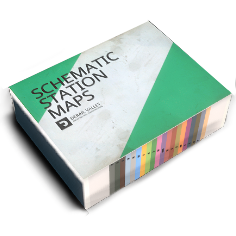Switches & Switch Signs: Difference between revisions
No edit summary |
Diverging/converging section |
||
| Line 3: | Line 3: | ||
<!--T:1--> | <!--T:1--> | ||
Switches are moveable pieces of {{pll|Railway Terminology|track}} designed to steer {{pll|Rail Vehicle Types|rail vehicles}} in one of two possible directions. Depending on the session {{pll|Difficulty|difficulty settings}}, switches can be operated in many ways: | Switches are moveable pieces of {{pll|Railway Terminology|track}} designed to steer {{pll|Rail Vehicle Types|rail vehicles}} in one of two possible directions. Depending on the session {{pll|Difficulty|difficulty settings}}, switches can be operated in many ways: | ||
* Using {{pll|Comms Radio Switch| | * Using {{pll|Comms Radio Switch|comms radio}} aimed at the switch | ||
* Using {{pll|Station Map|station}} and {{pll|Route Map|route}} schematic maps with the {{pll|Dispatcher|Dispatcher license}} | * Using {{pll|Station Map|station}} and {{pll|Route Map|route}} schematic maps with the {{pll|Dispatcher|Dispatcher license}} | ||
* Using {{pll|Switch Setter| | * Using {{pll|Switch Setter|switch setter}} {{pll|Gadget Installation|gadget}} | ||
* Using mouse cursor in mouse mode | * Using mouse cursor in mouse mode | ||
* By manually interacting with the switch lever | * By manually interacting with the switch lever | ||
When crossing a switch from the diverging end, it needs to be aligned to the desired direction of travel. When crossing it in the opposite direction, however, the switch doesn't need to be aligned. It will automatically change to the track that the crossing wheels are coming from. | |||
<!--T:4--> | <!--T:4--> | ||
Revision as of 14:13, 11 March 2025
Switches are moveable pieces of track designed to steer rail vehicles in one of two possible directions. Depending on the session difficulty settings, switches can be operated in many ways:
- Using comms radio aimed at the switch
- Using station and route schematic maps with the Dispatcher license
- Using switch setter gadget
- Using mouse cursor in mouse mode
- By manually interacting with the switch lever
When crossing a switch from the diverging end, it needs to be aligned to the desired direction of travel. When crossing it in the opposite direction, however, the switch doesn't need to be aligned. It will automatically change to the track that the crossing wheels are coming from.
There are two types of signs associated with switches: announcing and navigational one.
Announcing sign has a red “Y” shape on a white background, indicating an upcoming switch ahead and the end of the current speed limit section. It has a white appendix sign underneath, indicating the distance remaining to the switch, in kilometers. For example, a distance of 400m would be marked as "0.4".
Navigational sign is located on the switch itself. It shows a diagonal white line on a red background, indicating the direction the switch is set to. Changing the switch will move the sign to point in a different direction, along with the track alignment.
When operating long trains in reverse, distance tracker can be very useful to navigate switches.
